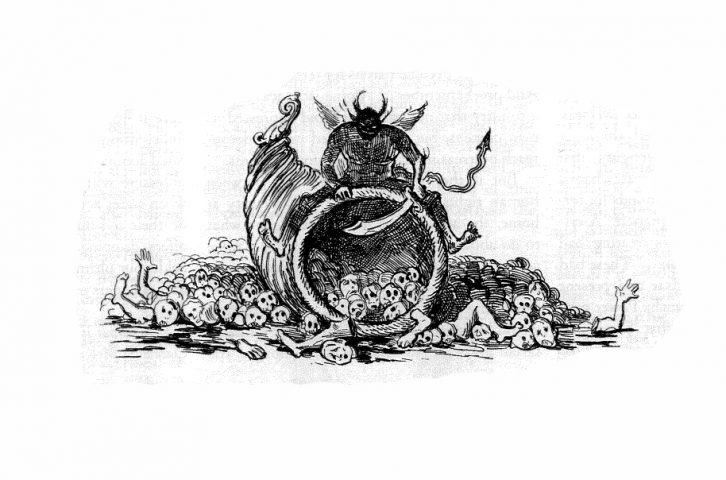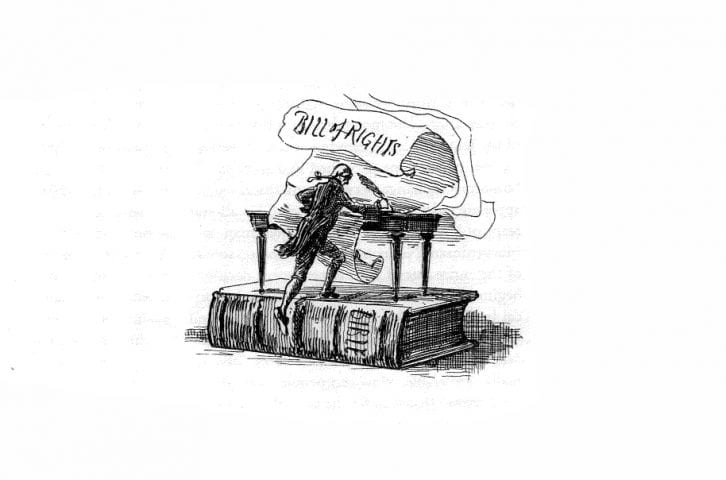Books Reviewed
Many a scholar is a would-be Yoda in search of a Luke Skywalker. Ever since JFK hired Arthur Schlesinger, Jr., as a court intellectual, generations of grad-school grinds have dreamed of tutoring presidents. “Never mind that vulgar whip count,” the political scientist imagines himself saying. “My regression analysis shows that you can win this vote.” And the fantasy president, who looks just like Martin Sheen, gratefully nods in agreement.
Intellectuals and the American Presidency is a splendid antidote for such pipe dreams. In this tightly-written book, Tevi Troy shows that the intellectual’s place in the White House is usually a subordinate one. Presidents use professors for their own purposes, not the other way around.
At the outset, Troy makes a key distinction. Many Ph.D.s have held powerful posts in the White House and Cabinet, with Henry Kissinger and Lawrence Summers as two prominent examples. But such people have served their presidents as policy experts, not as “intellectuals” per se. When Troy refers to presidential intellectuals, he is talking about reputable scholars who try to link the president with the world of ideas.
To document their activities, Troy combed presidential libraries all over the country. This work is hard. Troy deserves our thanks for applying careful scholarship to a topic that has often spawned glib generalizations.
As he points out, FDR’s “Brain Trust” was an early effort to exploit intellectuals for partisan ends. Though the brain trusters got a great deal of attention and had some impact on the 1932 campaign, Troy says, “they exerted little influence on the administration itself.”
Several decades later, John Kennedy finally gave intellectuals an open door to the West Wing—or so they thought. In the early days of the 1960 presidential race, JFK set up an academic advisory committee. “‘Not all their material was usable and even less was actually used,'” Troy notes, quoting Kennedy aide Theodore Sorensen. But the committee helped draw articulate people into Kennedy’s camp, which was good enough. The intellectuals wrote favorable articles and gave flattering quotes to the press. In the White House, Schlesinger helped JFK sustain this courtship. “He didn’t do a helluva lot, but he was good to have around,” said Robert Kennedy.
Historian Eric Goldman tried to play a similar role for Lyndon Johnson, but as Troy shows, Vietnam wrecked any chance for a link between the Pedernales and the Charles. Under Nixon, Pat Moynihan briefly rivaled Schlesinger’s power and publicity, but there were limits on what he could do. The guy who caught Alger Hiss was never going to be an Ivy League favorite.
The little-remembered Ford presidency marked a turning point. Before the late 1970s, the intellectual Right had consisted mainly of a few journals and a small archipelago of conservative colleges. Now think tanks and foundations became major players. Troy shows how Ford assistant Robert Goldwin was less a liaison to the general academic community than an ambassador to the rising conservative counter-establishment. (On this point, Troy quotes some revealing correspondence between Goldwin and Harry Jaffa.)
Goldwin’s tenure also marked the last time that the White House would rely on a single house intellectual. Though both Carter and the elder Bush were bright men with scores of brighter people around them, neither cared much for academicians. And Troy perceptively sums up why Reagan did not need a goodwill ambassador. With conservatives backing him and liberals scorning him, “[b]oth sides had already made up their minds.”
Clinton seduced the academy as deftly as he seduced…uh, let’s not go there. Since his own Rolodex of intellectuals dated back to his days at Georgetown, Oxford, and Yale, he could do his own courting. Henchman Sidney Blumenthal served as social secretary, waltzing professors and writers into the White House for meetings with Clinton. Most left dazed and giddy. The payoff came when they gladly defended him against charges of perjury and sexual harassment. Troy writes: “The unyielding support of the liberal intellectual establishment during the Lewinsky crisis helped him keep his presidency.”
Troy touches only briefly on the current administration, noting that its most prominent intellectual was John J. DiIulio, the political scientist who headed the Office of Faith-Based and Community Initiatives. Since the book’s publication, the reasons for DiIulio’s short tenure have become clearer. In Esquire magazine, he told journalist Ron Suskind of his frustrations with the “Mayberry Machiavellis,” the political types who lead the White House staff. Acknowledging that aides handled electoral politics with skill, DiIulio fumed at the quality of internal policy debate. Of the head of the Domestic Policy Council, he said: “What she knows about domestic policy could fit in a thimble.”
Welcome to Washington, Professor DiIulio. Similar thoughts have occurred to nearly every Ph.D. who has ever served on a policy staff, including yours truly. If he thinks that the Bush Administration is unique in this regard, he should read Troy’s analysis of how Dick Morris drove Clinton. “With Morris in the picture,” Troy writes, “everything took a backseat to his polls.”
Complaining about politics in the West Wing is like complaining about speeding at the Indy 500. That was DiIulio’s first mistake. His second, as the Suskind article suggests, was refusing to make nice with conservative evangelicals. “The souls of my dead Italian grandparents are crying out to me,” he explained. He forgot that dead grandparents don’t vote. Living evangelicals do. Moynihan, by contrast, was much smarter in courting Republican constituencies.
DiIulio’s third mistake was failing to see the limits of his own position. In The Right Man, a memoir of the first months of the Bush Administration, former speechwriter David Frum says that DiIulio quit in a huff when he finally figured out that Karl Rove was making key decisions on the faith-based initiative.
Even aside from his bruised ego, Italian-Catholic cultural roots, and Democratic voter registration, DiIulio was bound to feel out of place. Frum says that the Bush White House has plenty of bright people but few with vocal enthusiasm for the world of ideas. “Conspicuous intelligence seemed actively unwelcome in the Bush White House,” writes Frum. Former message czarina Karen Hughes “rarely read books and distrusted people who did—anything she did not already know she saw no point in knowing.”
Like DiIulio, Frum may be venting the pain of thwarted ambition: Hughes often rewrote his prose. But suppose he’s right. Does it matter? Hoover, Carter, and Clinton were all smarter in the S.A.T. sense than Roosevelt, Reagan, and George W. Bush—and all were lesser statesmen than their successors. At the staff level, White House intellectuals have done some good, but as Troy reminds us, they have also caused mischief. Eric Goldman staged an arts festival for LBJ, which became a fiasco when invitees attacked the Vietnam War.
Imagine that Bush tried to fill the “conspicuous intelligence” gap by naming a great mind as his goodwill ambassador to academia. First, Leno and Letterman would mine weeks of material from “Bush’s hired brain.” Second, universities would react with cold shoulders and closed doors, since they are even more hostile to conservatives than in the Reagan years. Third, conservative intellectuals would complain that the ambassador was not doing enough. (Face it, fellow members of the vast right-wing conspiracy: we’re awfully hard to please.) Fourth, White House staffers would keep the ambassador away from the Oval Office. Fifth, the ambassador would quit in disgust, and write a tell-all book.
It’s hard to see how Bush would come out ahead.
Yet even if an “intellectual ambassador” is a bad idea, Bush could benefit from staffers who know the world of ideas. For one thing, they could supply the vigorous internal debate that DiIulio found lacking. For another, they could serve as a distant early warning system. The mainstream academic community will supply Bush’s foes with policy ideas and lines of political attack. Clues to the other side’s strategy could well lie in some of the books that Karen Hughes purportedly disdained.
Aspiring White House aides should know about the services they could render, as well as the severe limitations of their role. They may find their own clues in Tevi Troy’s excellent study.




